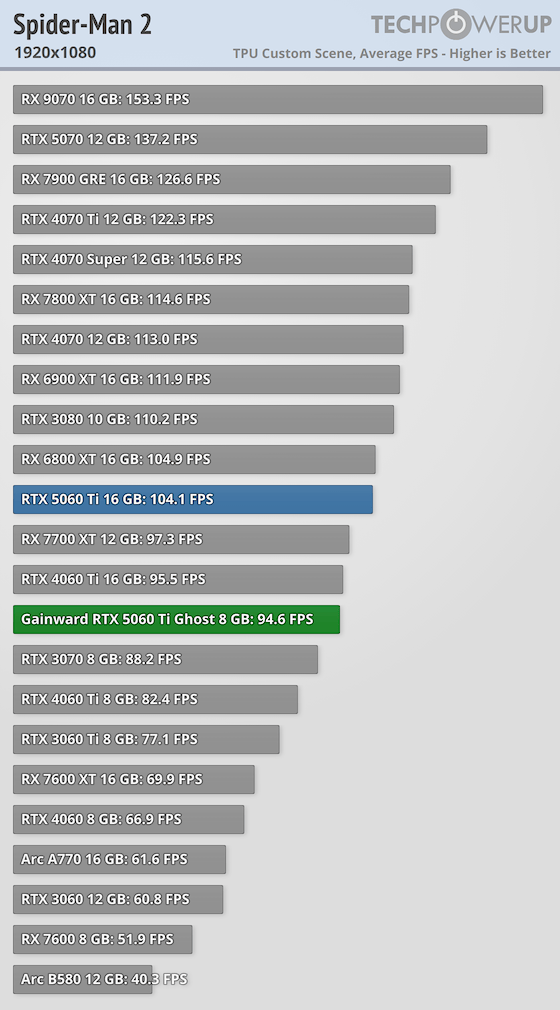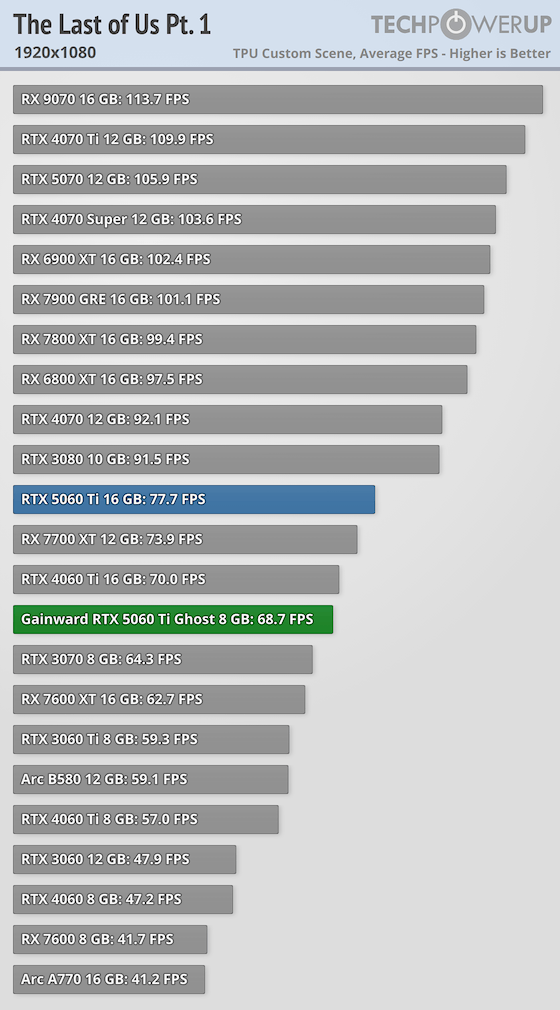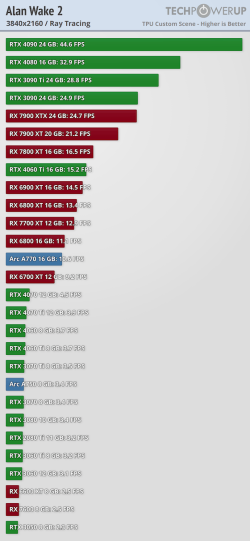- Joined
- Aug 19, 2017
- Messages
- 3,254 (1.13/day)
According to the only publicly available sales data from one of Germany's largest retailers, Mindfactory.de, we gain insight into the sales of NVIDIA's GeForce RTX 5060 Ti 16 GB and 8 GB models. According to the sum of the units sold, the 16 GB version of the GeForce RTX 5060 Ti is outselling the 8 GB version by more than 16 times, which represents a 1,600% difference. Mindfactory lists each GeForce RTX 5060 Ti model with a tag indicating the number of units sold, showing how many units were sold to customers of a specific model. This includes every model that Mindfactory offers, including SKUs from MSI, GIGABYTE, INNO3D, Palit, ZOTAC, ASUS, and other AIC partners. At the time of writing, the 8 GB version of the GeForce RTX 5060 Ti model has been sold in 105 instances, compared to 1675 units sold of the 16 GB version.
It is important to note that sales performance on 8 GB and 16 GB SKUs are based on Mindfactory, which is only a single regional retailer, showing only a single part of the GPU sales story. We even considered supply as an issue for the massive difference in unit sales; however, availability of both GPU SKUs is good, as checked on Geizhals.de. Most models are available in 20+ quantities, showing that availability is not hindering sales. This is not the typical AMD vs. NVIDIA sales comparison. It's within a product family, highlighting something much more specific. It signals that gamers are willing to spend a couple of dozen Euros extra to get the 16 GB version of their chosen GPU, essentially "future proofing" their system for some more demanding games. Especially as many features, like path tracing, demand more VRAM, having an extra 8 GB of memory buffer allows the GPU to run modern games with ease. For gamers who want to sell their system down the road for an upgrade, the 16 GB version will also be more prized in the secondary markets like eBay and others. We launched a new poll here, so make sure to let us know your opinion on which card you would purchase, as the battle for ever-greater VRAM capacity continues.

View at TechPowerUp Main Site
It is important to note that sales performance on 8 GB and 16 GB SKUs are based on Mindfactory, which is only a single regional retailer, showing only a single part of the GPU sales story. We even considered supply as an issue for the massive difference in unit sales; however, availability of both GPU SKUs is good, as checked on Geizhals.de. Most models are available in 20+ quantities, showing that availability is not hindering sales. This is not the typical AMD vs. NVIDIA sales comparison. It's within a product family, highlighting something much more specific. It signals that gamers are willing to spend a couple of dozen Euros extra to get the 16 GB version of their chosen GPU, essentially "future proofing" their system for some more demanding games. Especially as many features, like path tracing, demand more VRAM, having an extra 8 GB of memory buffer allows the GPU to run modern games with ease. For gamers who want to sell their system down the road for an upgrade, the 16 GB version will also be more prized in the secondary markets like eBay and others. We launched a new poll here, so make sure to let us know your opinion on which card you would purchase, as the battle for ever-greater VRAM capacity continues.

View at TechPowerUp Main Site











